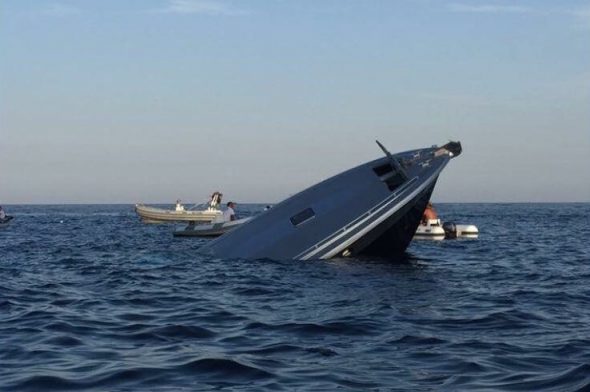Nautical error, gross negligence and wilful misconduct: let’s talk about insurance and cover
Which cases does insurance cover? And what is nautical error? The details below should help.

Nautical error, gross negligence and wilful misconduct: let’s talk about insurance and cover
Which cases does insurance cover? And what is nautical error? The details below should help.
Readers of Liguria Nautica have perhaps already heard of the OTAM 45 which sank near Panarea, in the shallows of Formiche. Luckily there were no injuries among the four people on board, all rescued thanks to prompt intervention, but the yacht had a gash along the side of its hull (for those who missed the news, details can be found here). Having avoided dire consequences, what happened can give us – without going into too much detail – a chance to dive in to what the protocol is for insurance in regards to negligence, and understand, therefore in which cases insurance needs to respond, at least in general.
Pursuant to Art. 524 of the Italian Code of Navigation, the insurer response to the accident depends in whole or in part of the commander or other members of the crew, as long as the policy holder was not involved. If, however, the policy holder is also the captain of the boat, the insurance cover will be limited to nautical error.
Nautical error is behaviour that characterises negligence, imprudence or incompetence in carrying out tasks regarding the navigation of the vessel (this is considered to be “navigation” error, referring to, for example, errors in manoeuvring, of course, or anchoring) or maintenance, meaning the functioning of what is needed for navigation (also called “ship administration” error).
What is not covered, instead, is insurance for accidents caused by wilful misconduct – and thereby, intentional – or gross negligence of the contracting party, the policy holder or beneficiary (unless the parties come to a different agreement in the case of gross negligence). The principle dictated by Art. 1900 of the Italian Civil Code regarding general insurance, but which is also applicable in the maritime field, as the needs are the same: to avoid that the beneficiary acts in a superficial manner, or worse, with the specific intent of defrauding the insurance company.
On the other hand, however, the obligation of the insurer subsists if the person acting with willful misconduct or gross negligence was not the policy holder, but someone under their responsibility, like, for example, a dependant. The parties can come to an agreement to exclude this obligation for the insurer, which is common practice, but it is useful to know that a similar clause limiting responsibility, in order to be considered valid, requires specific written approval.
Lastly, it is important to remember that the insurer is, however, obligated to cover, even when the parties have negotiated differently, for accidents that are the result of acts carried out for the purpose of human solidarity or in protecting the common interests of the policy holder and insurer.
Without offering legal consultation, we have tried to give you, as easily as possible, more information useful for readers preparing to sign a contract or who want to know more about a sector, which is ample and quite technical, like that of insurance.
Maria Elena Iafolla
Topics: insurance special, italian nautical insurance, nautical error



